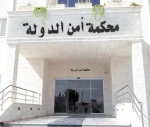You are here
Arabs: The weak link in the US civil liberties chain
Apr 28,2025 - Last updated at Apr 28,2025
For decades, Arabs, in particular Palestinians, and supporters of Palestinian rights, have been the weak link in the civil liberties chain. US presidents and Congress have repeatedly taken measures curtailing civil liberties by exploiting the perception that Arabs pose a danger to justify their actions. Negative stereotypes associated with Arabs made these measures acceptable and opposition unlikely. Examples abound:
In the 1980s, the Reagan administration began rolling back civil liberties with an attack on Arabs’ rights. A 1981 executive order dismantled Carter administration reforms that outlawed domestic surveillance by the CIA and FBI, using Arabs as the scapegoats to justify this measure. For five years, the FBI infiltrated and disrupted Palestinian student groups nationwide, before finally disbanding the effort with nothing to show for it.
Reagan’s Department of Justice and Congress rewrote US extradition law, easing fulfillment of foreign countries’ requests to extradite individuals without due process protections. It began with the case of a Palestinian visa holder whose extradition had been requested by Israel.
Also under Reagan, the Immigration and Naturalisation Service released its “Alien Terrorist and Undesirables Contingency Plan,” detailing steps to imprison, try in secret, and deport large numbers of aliens based on ethnicity or political beliefs, making several references to Arab immigrants. The test case used to lay the groundwork was the arrest of seven Palestinians and one’s Kenyan wife, charging them with nothing more than their political beliefs and association.
In 1995, President Clinton issued an executive order “Prohibiting Transactions with Terrorists Who Threatened to Disrupt the Middle East Peace Process,” followed by the Omnibus Anti-Terrorism Act of 1995. Both efforts introduced draconian measures eroding civil and political rights guaranteed to US citizens and residents under the Constitution and international law, including removing the presumption of innocence for those under investigation and allowing the government to detain and deport individuals based on secret evidence. Then the Clinton administration unleashed a nationwide profiling program at airports, which harassed and questioned hundreds of Arab and Arab American airline passengers, based solely on their dress, appearance, or Arabic names.
After 9/11, the Bush administration and Congress upped the ante. While intelligence failures and lax airline safety requirements were at fault, Bush’s orders resulted in the roundup and deportation of thousands of innocent Arab students, workers, and visitors. Anti-terrorism legislation allowed expanded surveillance by law enforcement, including warrantless wiretapping, searching library records, and an expanded use of profiling. Law enforcement agents infiltrated mosques and Arab social clubs, entrapping a few gullible individuals in plots often organised by the agencies themselves.
This partial history lays the predicate for the Trump administration’s recent actions: threats to civil liberties like freedom of speech, assembly, and academic freedom; expanded authority given to law enforcement agencies to use unconstitutional measures to detain and deport individuals based on ethnicity or political beliefs; and an expanded interpretation of the “material support” argument used by the Reagan and Clinton administrations to violate protected rights.
While the measures taken during the Reagan, Clinton, and Bush administrations were based on exaggerated fears of terrorism, it’s noteworthy that these profiling, surveillance, and immigration programs did little to uncover or prosecute actual cases of terrorism. Despite billions spent and precious law enforcement resources expended, these programs did nothing more than contribute to expanding law enforcement powers and eroding rights. Trump orders don’t even use the pretense of fighting terrorism. They’re an exercise in the use of power to create fear and force institutions and individuals to cower and submit.
What Trump’s and previous administrations’ policies share in common is the use of Arabs, particularly Palestinians, and their supporters, as convenient scapegoats to justify the erosion of rights and liberties. Trump knows that in the midst of Israel’s war on Gaza, his base will enthusiastically back his efforts. Liberals in Congress, who might otherwise oppose his policies, will hesitate to offer full-throated support to his victims if they are defenders of Palestinians or critics of Israel. For Trump, it’s the perfect storm. For those who care about civil liberties, it’s just another example of Arabs, Palestinians, and those who defend them as the weak link in the civil liberties chain.
The writer is president of the Washington-based Arab American Institute












Add new comment